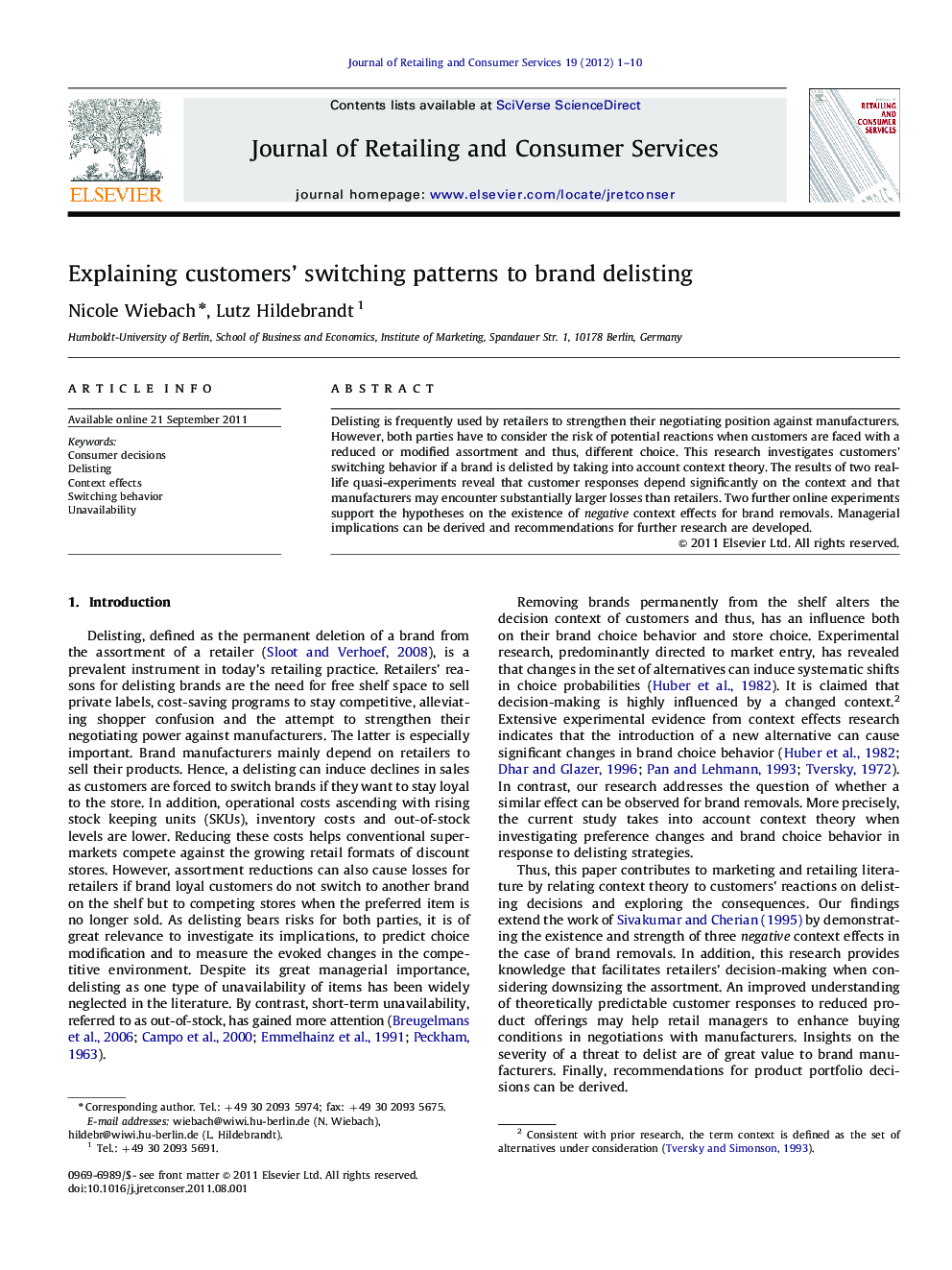| Article ID | Journal | Published Year | Pages | File Type |
|---|---|---|---|---|
| 1029168 | Journal of Retailing and Consumer Services | 2012 | 10 Pages |
Delisting is frequently used by retailers to strengthen their negotiating position against manufacturers. However, both parties have to consider the risk of potential reactions when customers are faced with a reduced or modified assortment and thus, different choice. This research investigates customers' switching behavior if a brand is delisted by taking into account context theory. The results of two real-life quasi-experiments reveal that customer responses depend significantly on the context and that manufacturers may encounter substantially larger losses than retailers. Two further online experiments support the hypotheses on the existence of negative context effects for brand removals. Managerial implications can be derived and recommendations for further research are developed.
► Customer responses on delisting depend significantly on context. ► The removal of brands affects choice shares in a theory-based predictable way. ► Negative similarity, attraction and compromise effects are demonstrated. ► Manufacturers encounter substantially larger losses than retailers.
